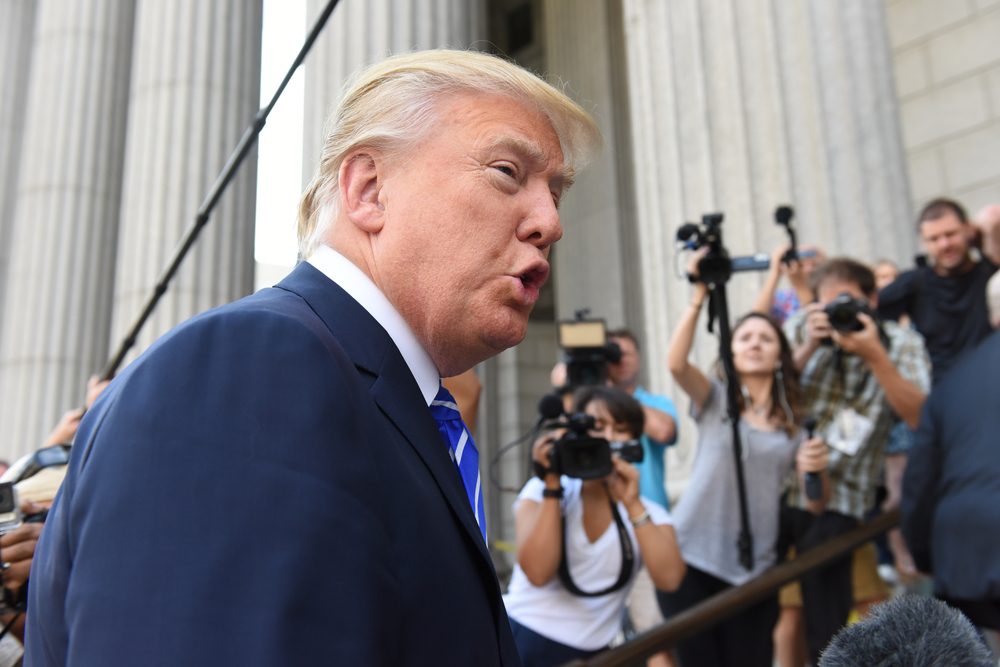This week, President Donald Trump has shifted his focus from looming tariffs on China to prospective tariffs on Mexico. Instead of tweeting or speaking about the possible 25% tariffs on Chinese goods like he has been for several months, Trump has switched gears and now proposed a 5 percent tariffs on imports from our southern neighbor, which has caused yet another bout of panic within all industries including the auto industry.
Paul Eisenstein of CNBC reported that the tariffs on Mexico are Trump’s way of “railing against a surge of illegal immigrants across the southern U.S. border,” which has been one of his most prominent focuses throughout his campaign and his presidency. Trump announced that he would start by implementing a 5% tariff on all Mexican goods and subsequently increase that by 1 percent every month until it reached 25% unless Mexico takes swift action to remedy the “border crisis.”
Analysts have pointed out that the tariffs would contradict the terms of Trump’s new United States-Mexico-Canada Agreement (USMCA), as the agreement states that the three countries would remove tariffs on products and practice free trade. White House chief of staff Mick Mulvaney, however, stated that “these are not tariffs as part of a trade dispute, these are tariffs as part of an immigration matter, the USMCA is entirely separate.”
Of course, Mexico is one of the U.S.’s closest trade partners as well as one of the world’s largest automotive manufacturers. To put it in numbers, Eisenstein noted that U.S. vehicle imports from Mexico has almost doubled in the past decade, from around 1.4 million to 2.6 million per year. Auto imports from Mexico totaled over $93 billion in 2018, which accounted for around 15% of all U.S. vehicle sales throughout the year. Mexico exports huge amounts of auto parts as well, which would also be affected by any tariffs.
A May 30 article from Automotive News reported that Mexico has been an attractive location for automakers because of “its cheap labor, trade deals and proximity to the United States.” Numerous automakers have plants in Mexico, including General Motors, which exported 834,414 vehicles in 2018, as well as other companies like Chevrolet, Honda, Nissan, and Volkswagen.
Clifford Atiyeh of Car and Driver reported that if tariffs are placed on vehicles imported from Mexico “sticker prices could rise well more than the few hundred dollars that automakers usually charge with each new model year.” Deutsche Bank predicts that the average cost of vehicle would go up $1,300, which could put pressure on many consumers who are in the market for a new car.
Fred Bergsten of the Peterson Institute for International Economics crunched the numbers and noted that retailers and manufacturers would “absorb” most of the possible 5% tariffs, but if the tariffs were lifted all the way to 25%, the burden would be “passed on to shoppers, increasing costs by up $86 billion across the economy.” In terms of autos specifically, “prices could go up by several thousand dollars per model in the worst case scenario.”
Some Mexican officials have announced that they don’t think counter-tariffs will be Mexico’s response to any tariffs the Trump administration puts into place because the country doesn’t want to dismantle supply chains. Instead, a former Mexico-China ambassador stated that Mexico would likely “implement more strategic countermeasures as opposed to blanket tariffs.”
Franco Ordonez of NPR reported that Mexican authorities have “privately” warned Trump and his administration about the repercussions that new tariffs could have. Opponents of the tariffs are wary and think that although immigration laws are important, using tariffs in an attempt to remedy the situation at the border could end up impacting the economic success the U.S. gets from its partnership with Mexico.
Put simply, Texas Senator John Cornyn stated, “My state enjoys a strong relationship economically with Mexico because of that 1,200-mile common border.” Whether or not Trump will scale back his tariff threats before June 10 are unknown, but many automakers are bracing for impact should they be implemented.







